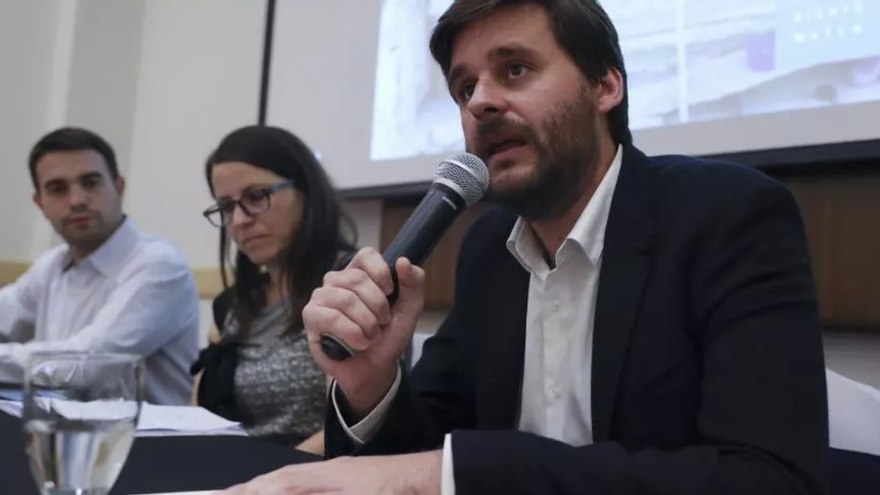
![]() 14ymedio, Havana, 14 November 2023 — It has been more than five years since Cuba last underwent the Universal Periodic Review (UPR) carried out by the UN in Geneva, and the deterioration of the situation within that period – in which Cuba has been twice elected a member of the Human Rights Council – is evident. The repression of the anti-government protests of 11 July 2021 (“11J”) will undoubtedly mark the analysis that will be carried out this Wednesday.
14ymedio, Havana, 14 November 2023 — It has been more than five years since Cuba last underwent the Universal Periodic Review (UPR) carried out by the UN in Geneva, and the deterioration of the situation within that period – in which Cuba has been twice elected a member of the Human Rights Council – is evident. The repression of the anti-government protests of 11 July 2021 (“11J”) will undoubtedly mark the analysis that will be carried out this Wednesday.
Cuba is experiencing a human rights crisis. In addition to the systematic repression of critics and dissidents, there is a severe economic crisis that impacts economic and social rights,” the deputy director of Human Rights Watch (HRW) for the Americas, Juan Pappier, told the Spanish agency EFE.
The numbers of detainees and political prisoners are chilling. According to the organization that emerged in the heat of the Justice 11J protests, 1,878 people were arrested for political reasons and about 700 sentenced to prison sentences of up to 30 years. The Madrid-based NGO Cuban Observatory of Human Rights (OCDH) estimates that 11,000 arbitrary arrests have been made since May 2018, when the Island underwent its last UPR.
Meanwhile, Prisoners Defenders (PD), also from Spain, puts the number of political prisoners currently in Cuba at 1,062, five more than in October. The cascade of negative data accumulates.
“Cuba has expanded its sophisticated machinery of control over freedom of expression and assembly” and resorted to a “culture of fear”
Amnesty International (AI), which sends the committee a report with its analysis of the situation, states that there are at least 13 prisoners of conscience, which include the artists of the San Isidro Movement Luis Manuel Otero Alcántara and Maykel Castillo Osorbo and the leader of the Patriotic Union of Cuba (Unpacu), José Daniel Ferrer.
They are just the tip of the iceberg for AI, which warns of a “massive incarceration” of protesters in addition to Internet restrictions. “Cuba has expanded its sophisticated machinery of control over freedom of expression and assembly” and resorted to a “culture of fear” through the criminalization of protests, the text states.
For Pappier, the next UPR is “an opportunity to make this crisis visible and call for concrete improvements, such as the release of political prisoners,” although it is not the only moment that can be taken advantage of, since a week later, on November 23 and 24, the special representative of the European Union for Human Rights, Eamon Gilmore, who a few days ago met with Cuban opponents residing in Europe, will visit Cuba.
Although there is no planned agenda for this trip, the official is expected to hold meetings with members of the Government (ministries of Justice and Interior), and also with members of civil society. His arrival in Cuba was agreed during the visit to the Island of the EU’s High Representative for Foreign Policy, Josep Borrell, last May.
On that trip there was a meeting between the European chancellor and people from civil society, including the intellectual Alina Bárbara López Hernández, who faces a trial on November 28 for disobedience that may mean a year in prison.
“More than worried, I arrive eager to see how they are going to fix the problem that they themselves have created. I haven’t violated any law”
“More than worried, I arrive eager to see how they are going to fix the problem that they themselves have created. I have not violated any law,” said the historian, who is claimed to be on the left but has defied the regime during the last year. As she explained to the agency, she is willing to “face risks” for “coherence and dignity.”
“Since 11 July 2021, action has been taken without measuring consequences,” said the teacher from Matancera, who is confident that the trial she will face will help to highlight the “type of State” that operates on the Island.
The NGO DemoAmlat has asked Cuba, in the face of the UPR, to eliminate several laws that limit the exercise of human rights and freedom of expression, in addition to allowing plural elections and guaranteeing the freedoms of the press, assembly and demonstration.
“The Universal Periodic Review at the UN Human Rights Council on November 15 is an opportunity for the international community to demand that Havana stop the barbarism against human rights activists and independent journalists, release the more than 1,000 political prisoners and make the structural political and economic changes that the country needs for the Universal Declaration of Human Rights to be fulfilled,” the OCDH says in a statement preceding the evaluation.
Despite the overwhelming pronouncements and calls for attention from organizations of all kinds, the regime considers that “Cuba honors its commitments and obligations” under the 44 international human rights instruments it has signed (of the 61 recognized by the UN), according to its permanent representative in Geneva, Juan Antonio Quintanilla.
“Cuba continues to strengthen its legal and institutional framework for the promotion and protection of human rights,” the official added.
Translated by Regina Anavy
____________
COLLABORATE WITH OUR WORK: The 14ymedio team is committed to practicing serious journalism that reflects Cuba’s reality in all its depth. Thank you for joining us on this long journey. We invite you to continue supporting us by becoming a member of 14ymedio now. Together we can continue transforming journalism in Cuba.
